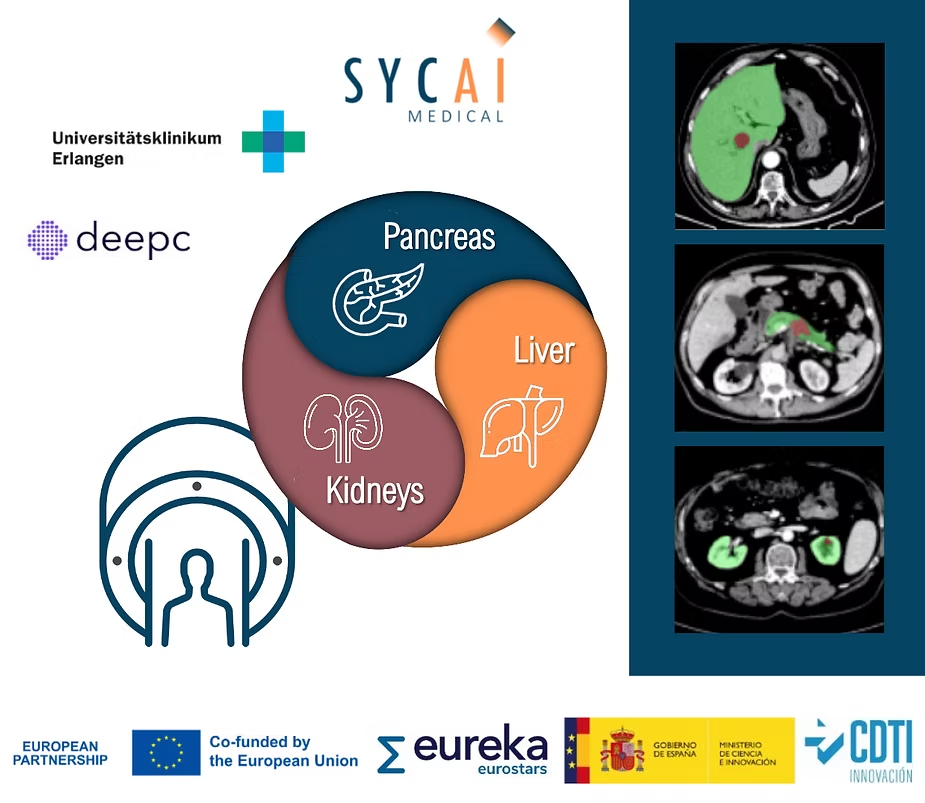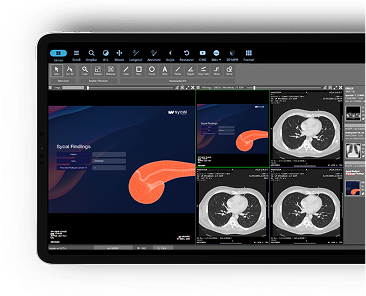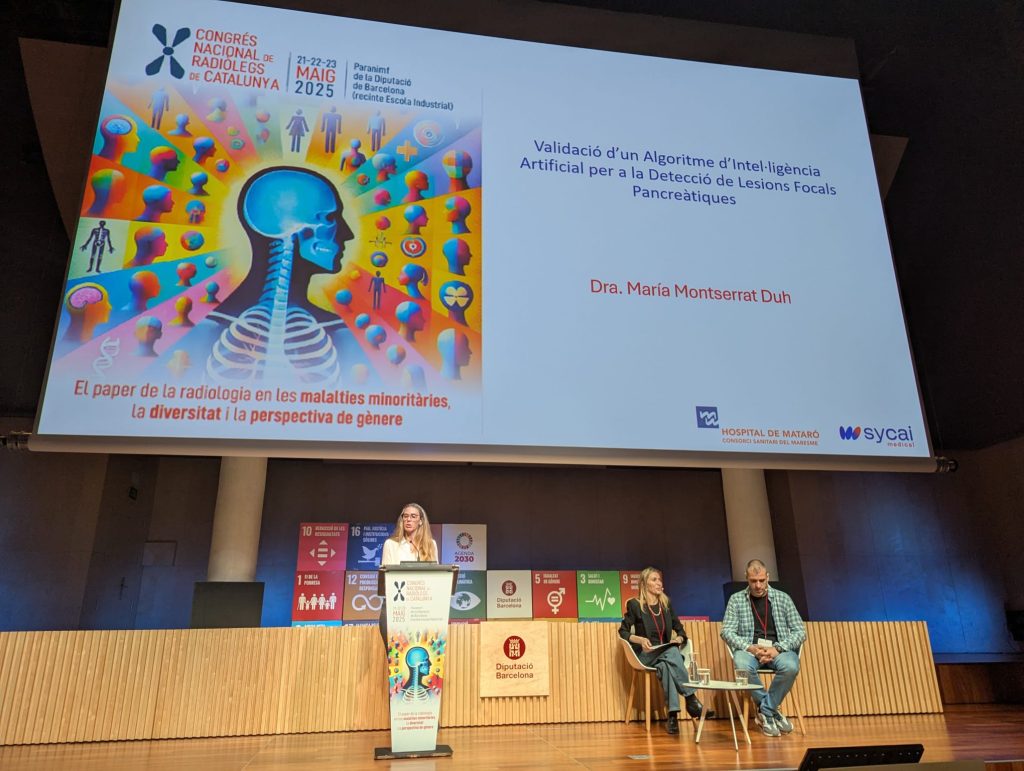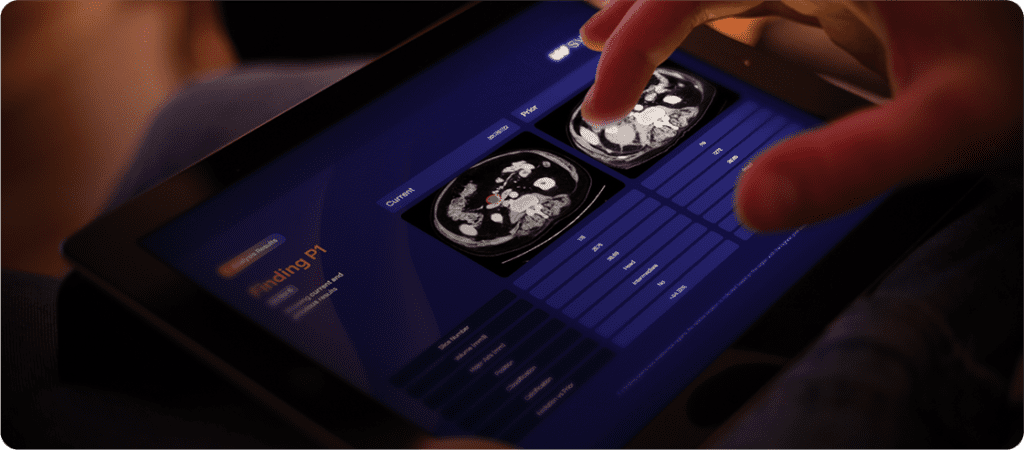Advancing early diagnosis with AI: the completion of the DARE-KPL Project
We are excited to announce the successful completion of the DARE-KPL project, a groundbreaking initiative developed under the Eurostars program (Eurostars-3 Call 2, num. 1661). This achievement was made possible through close collaboration with the Radiological Department at the University Hospital Erlangen in Germany and deepc, an industry leader in AI integration for healthcare. Together, we have developed and validated a powerful digital assistant designed to aid radiologists in the early-stage, non-invasive diagnosis of pancreatic, kidney, and liver focal lesions.
Addressing the challenge of early detection
Detecting focal lesions in the pancreas, kidney, and liver at an early stage is a critical, yet challenging task in medical diagnostics. These lesions are often small and difficult to identify, making early detection crucial for effective treatment. Traditional diagnostic methods can be invasive and time-consuming, adding strain to both patients and healthcare providers. The DARE-KPL project set out to overcome these obstacles by creating an AI-powered digital assistant that enhances radiologists’ ability to detect and diagnose these lesions with greater precision and efficiency.
The DARE-KPL digital assistant: a new era of diagnostic support
At the core of the DARE-KPL project was a highly advanced digital assistant, leveraging deep learning to analyze medical images, particularly from Computed Tomography (CT) scans. This AI-driven technology was designed to detect millimetric focal lesions that could easily elude even the most experienced radiologists. By automating the intricate process of image analysis, the assistant was engineered to enable the rapid processing of extensive image datasets, thereby substantially reducing the time needed for diagnosis.
The integration of this digital assistant into a cloud-based Artificial Intelligence platform was pivotal. It ensures that critical diagnostic information is not only processed efficiently but also made immediately accessible to healthcare professionals across various locations.
Collaborative success with University Hospital Erlangen and deepc
The success of the DARE-KPL project would not have been possible without the collaboration of the University Hospital Erlangen’s Radiological Department. Their involvement provided the necessary clinical expertise and allowed for the validation and demonstration of the digital assistant in a hospital environment. This real-world testing was crucial in refining the assistant to meet the demands of healthcare professionals.
In addition, our partnership with deepc has been instrumental in ensuring that the digital assistant can be effortlessly integrated into existing healthcare IT systems. Deepc’s AI Operating System streamlines the integration process, allowing the assistant to be quickly adopted in healthcare centers and smoothly incorporated into the daily routines of radiologists. This collaboration has not only reduced the time needed for lesion detection but also enhanced the overall efficiency of diagnostic workflows.








